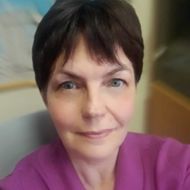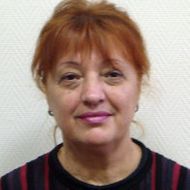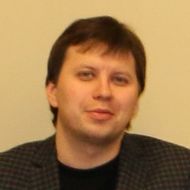- A
- A
- A
- ABC
- ABC
- ABC
- А
- А
- А
- А
- А
3 Bolshoi Tryokhsvyatitelsky Pereulok, room 445
e-mail: proclaw@hse.ru
Phone: 8 (495) 7729590, ext. 22735


Research
Scientific work is an independent direction and an integral part of the School's activitiy, since it allows us to provide high quality education. The School's research areas organically combine both classic, so-called 'evergreen' topics of jurisprudence, as well as the new problems, the appearance of which is caused by the objectively ongoing transformation of the socio-economic and political relations and by the technological order shift.
In the field of organisation of judicial power and procedural law, research is being conducted on the essence of fair trial, its content and legal regulation at the national and international levels, and on the means of ensuring it in various types of legal proceedings in the Russian legal system and in foreign legal orders. In 2020-2022 a study of the new scientific problems is planned – the impact of the artificial intelligence technologies on the national justice systems and analysis of their activity using Big Data methods, including the limits and forms of its application in internal management processes as well as created for evaluation of the effectiveness of the judicial system, also in the course of the administering of justice in specific cases.
Tamara G. Morshchakova, ordinary Professor of HSE, Professor of the School, retired judge of the Constitutional Court of the Russian Federation, enjoys an undoubted and well-deserved international authority over many years. Her research works are devoted to the problems of evaluating the quality of judicial proceedings, identifying and eliminating judicial errors, reviewing judicial acts, of the sociology and psychology of judicial activity, and to the constitutional foundations of judicial power. Published often more than 30-40 years ago, these works do not lose their relevance until now, but, on the contrary, today they are only gaining relevance and become a solid scientific foundation for modern lawyers.
Original interdisciplinary research of the Russian procedural law institutions based on the cornerstone ideas of the concept of judicial law is conducted by the head of the School, associate professor Timur V. Sokolov.
In the field of criminal law, the School has a successful and recognized research experience in the field of substantive criminal law, especially economic, comparative and international criminal law, that will be continued in the future. New areas of research are formed mainly by raising issues concerning the limits of transformation of the existing criminal legal institutions in connection with the development of the artificial intelligence technologies, rethinking the place of criminal law in the system of measures of the state influence on personality, society and economic system as well as the development of the new approaches to public offences, including administrative offences, criminal misdemeanors and crimes.
The team of specialists in criminal law was formed by Alfred E. Zhalinsky (1932-2012), an ordinary professor of HSE, doctor of law, Honored scientist of the Russian Federation, whose name is associated with the establishment of the University as one of the centers of the criminal legal thought. Most of the School's lecturers specialising in criminal law or criminology are his students. Currently, the tradition of the criminal law and criminological research has been continued by professors Yulia V. Gracheva, associate professor Artur A. Engelgardt, Ruslan O. Dolotov and other colleagues.
Lecturers of the School are members of the editorial boards of leading Russian and a number of foreign scientific journals; take an active part in Russian and foreign scientific events of the highest level; present scientific reports that are highly appreciated by colleagues; are members of the program committees of scientific events organised by other scientific or educational organisations in Russia and abroad.
In September 2020 The School is launching a permanent Moscow Research Seminar on the Development of Justice in Russia and in the World.
- About
- About
- Key Figures & Facts
- Sustainability at HSE University
- Faculties & Departments
- International Partnerships
- Faculty & Staff
- HSE Buildings
- Public Enquiries
- Studies
- Admissions
- Programme Catalogue
- Undergraduate
- Graduate
- Exchange Programmes
- Summer Schools
- Semester in Moscow
- Business Internship
-
https://elearning.hse.ru/en/mooc/
Massive Open Online Courses
-
https://www.hse.ru/en/visual/
HSE Site for the Visually Impaired
-
http://5top100.com/
Russian Academic Excellence Project 5-100
- © HSE University 1993–2025 Contacts Copyright Privacy Policy Site Map
- Edit
